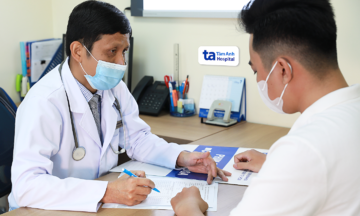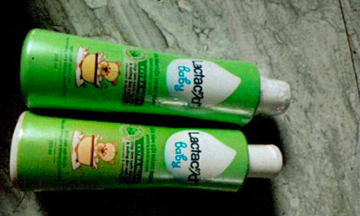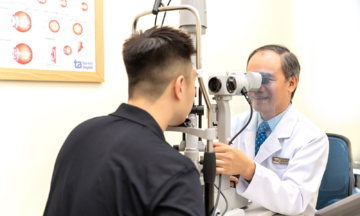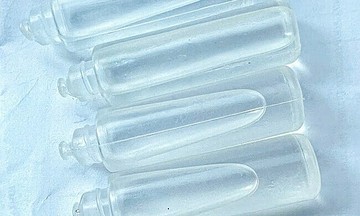Sinusitis, the inflammation of the sinus membranes, can lead to mucus buildup and is often caused by viruses, bacteria, fungi, nasal polyps, or allergies. Dr. Nguyen Phuoc Long from the Ear, Nose, and Throat Center at Tam Anh General Hospital in Ho Chi Minh City explains that while diet cannot cure sinusitis, it can alleviate discomfort.
Recommended foods
Vitamin C-rich foods: Vitamin C's antioxidant and anti-inflammatory properties boost the natural immune system. Common sources include oranges, lemons, grapefruits, tangerines, strawberries, kiwis, bell peppers, and broccoli. These can be enjoyed fresh, in salads, or as smoothies.
Honey: Sinusitis often causes mucus to drip down the throat, leading to irritation, discomfort, and persistent sore throats. Honey, with its natural antibacterial and anti-inflammatory properties, can prevent respiratory infections and soothe the throat. It can be mixed with warm water or herbal tea.
Warm liquids and soups: Warm drinks and hot meals can soothe the throat, clear nasal passages, thin mucus, and relieve congestion. Hot chicken soup, in particular, offers anti-inflammatory benefits, eases sinusitis symptoms, and provides protein for overall health.
Zinc and omega-3 rich foods: Zinc promotes tissue repair and strengthens immunity. Good sources include seafood like shrimp, crab, snails, and oysters, as well as pork, beef, whole grains, pumpkin seeds, and lentils.
Omega-3 fatty acids have potent anti-inflammatory properties, reducing swelling and improving respiratory health. These are found in salmon, mackerel, sardines, herring, flaxseeds, chia seeds, and sunflower seeds. Combining zinc and omega-3s in your diet can support treatment and prevent sinusitis recurrence.
Pineapple: The enzyme bromelain in pineapple reduces sinus inflammation, congestion, and pain. Pineapple is also rich in magnesium and the antioxidant vitamin C, which further boost the immune system and aid recovery.
 |
Citrus fruits and pineapple, rich in vitamin C, boost immunity in sinusitis sufferers. Image generated by AI |
Citrus fruits and pineapple, rich in vitamin C, boost immunity in sinusitis sufferers. Image generated by AI
Chili peppers: Capsaicin, the compound that gives chili peppers their heat, thins nasal and sinus mucus, clearing airways and relieving congestion. It also stimulates blood circulation in the nasal area. Dr. Long advises moderate consumption, as excessive intake can irritate mucous membranes and cause stomach or throat discomfort.
Garlic, ginger, and turmeric: The sulfur compounds in garlic have antibacterial, antifungal, and antiviral properties. Ginger boasts anti-inflammatory and antioxidant benefits, accelerating healing and reducing pain and swelling. Its antihistamine properties can also help prevent allergies and alleviate sinus discomfort. Turmeric, with its active compound curcumin, can be added to milk or used in cooking for its anti-inflammatory effects, soothing sinus membranes.
Drinking about 2 liters of water daily is recommended to keep nasal passages moist, thin sinus mucus, and prevent blockage. Avoiding certain foods can also help prevent recurrence and worsening of symptoms.
Foods to avoid
Processed sugars: Cakes, candies, and carbonated soft drinks are high in sugar, which can promote inflammation. Individuals with sinusitis should limit these and prioritize fruits, vegetables, and honey, which contain naturally occurring sugars beneficial for health.
Histamine-rich foods: Histamine is a molecule released by the body to fight bacteria. Excessive histamine levels can cause nasal swelling and congestion, exacerbating sinusitis symptoms. Common high-histamine foods include cheese, sausages, smoked meats, and processed meats.
Alcohol: Alcohol dehydrates the body, weakens the immune system, and triggers histamine release, leading to sneezing, headaches, and nasal congestion. Limiting alcohol consumption can support recovery.
In addition to dietary adjustments, maintaining a healthy lifestyle, including regular mask-wearing, nasal and throat hygiene, and a clean living environment, is crucial. Strengthening the immune system through exercise, managing stress and anxiety, and adhering to prescribed medical treatments are also essential for managing sinusitis.
Uyen Trinh
| Readers can submit questions about ear, nose, and throat conditions here for doctor's answers. |












